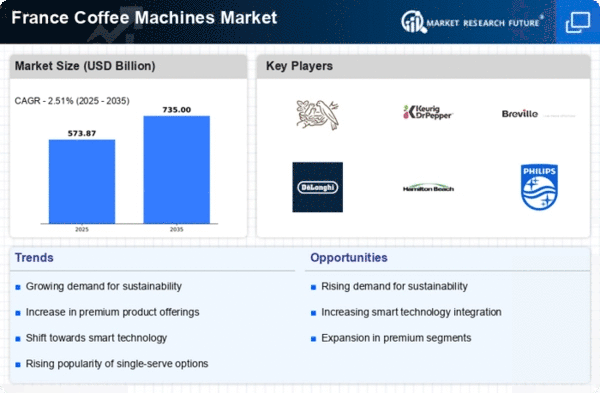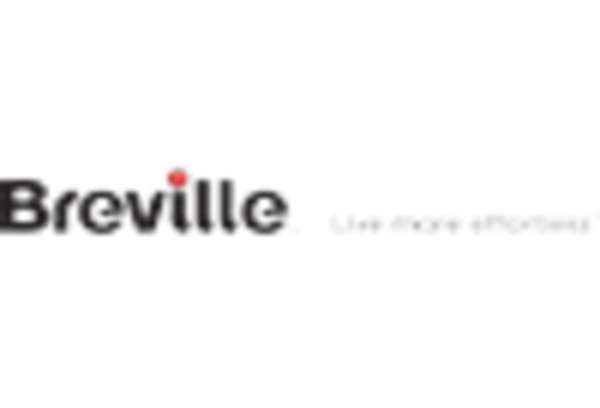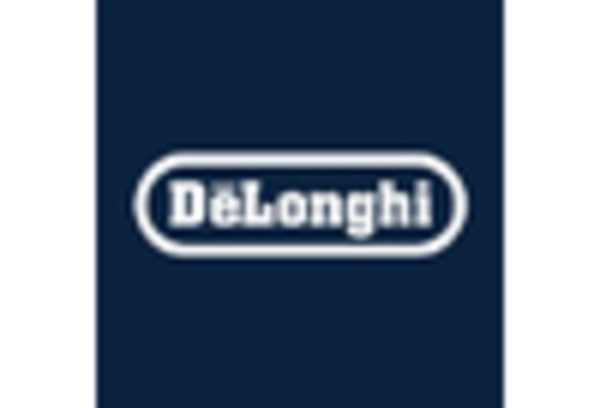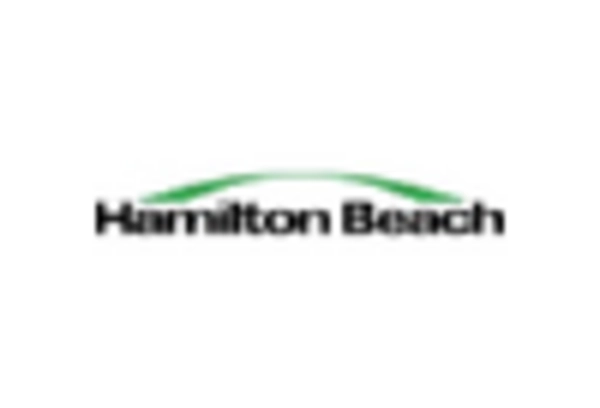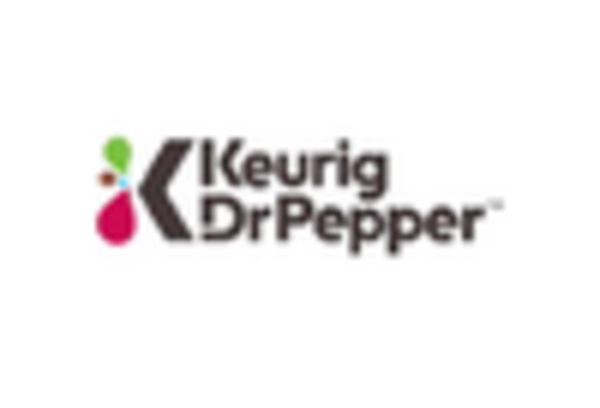E-commerce Growth
The rise of e-commerce in France is significantly impacting the coffee machines market. Consumers are increasingly turning to online platforms for their coffee machine purchases, attracted by the convenience and variety offered. Recent data indicates that online sales of coffee machines have surged by 25% in the past year, reflecting a shift in shopping behavior. This trend is prompting traditional retailers to enhance their online presence and adapt to the changing landscape. As e-commerce continues to grow, it is likely to reshape the distribution channels within the coffee machines market, providing consumers with greater access to a diverse range of products.
Rising Coffee Culture
The coffee machines market in France is experiencing a notable surge due to the increasing coffee culture among consumers. This trend is characterized by a growing appreciation for specialty coffee and artisanal brewing methods. As a result, consumers are investing in high-quality coffee machines that can replicate café-style beverages at home. Market data indicates that the demand for espresso machines has risen by approximately 15% in the last year alone. This shift towards premium coffee experiences is driving innovation in the coffee machines market, with manufacturers focusing on advanced brewing technologies and user-friendly designs to cater to discerning coffee enthusiasts.
Health and Wellness Trends
In recent years, there has been a significant shift towards health and wellness in France, influencing consumer choices in the coffee machines market. Many consumers are seeking healthier beverage options, leading to an increased interest in machines that offer features such as cold brew, organic coffee, and customizable brewing settings. This trend is further supported by market data showing that sales of coffee machines with health-oriented features have grown by 20% over the past year. As consumers become more health-conscious, the coffee machines market is likely to adapt by incorporating functionalities that promote healthier coffee consumption.
Sustainability Initiatives
Sustainability is becoming a crucial consideration for consumers in France, influencing their purchasing decisions in the coffee machines market. Many consumers are now seeking machines that are energy-efficient and made from sustainable materials. This trend is evident in the increasing demand for eco-friendly coffee machines, which has seen a growth of approximately 18% in sales over the last year. Manufacturers are responding by developing products that align with these sustainability initiatives, such as machines that reduce energy consumption and utilize recyclable components. As environmental awareness continues to rise, the coffee machines market is likely to see further innovations aimed at promoting sustainability.
Convenience and Time Efficiency
The fast-paced lifestyle of modern consumers in France is driving demand for convenience in the coffee machines market. With busy schedules, individuals are increasingly looking for machines that offer quick and efficient brewing solutions. Single-serve coffee machines, for instance, have gained popularity due to their ability to deliver a fresh cup of coffee in minutes. Market analysis reveals that single-serve machines account for nearly 30% of total coffee machine sales in France. This emphasis on convenience is prompting manufacturers to innovate and develop machines that not only save time but also enhance the overall user experience.


